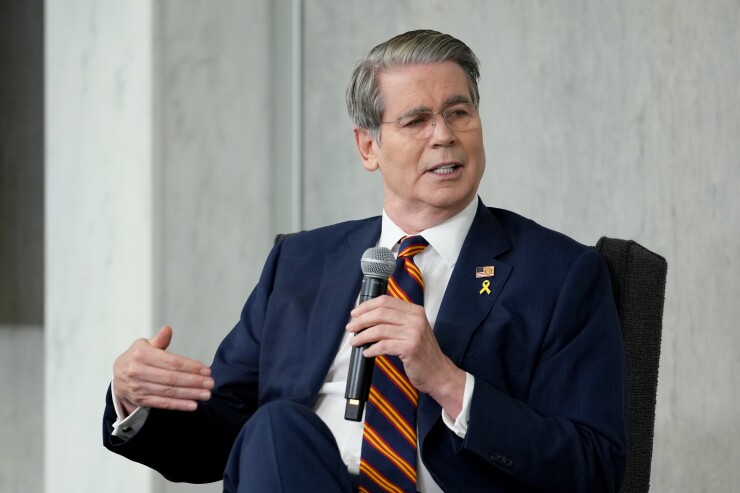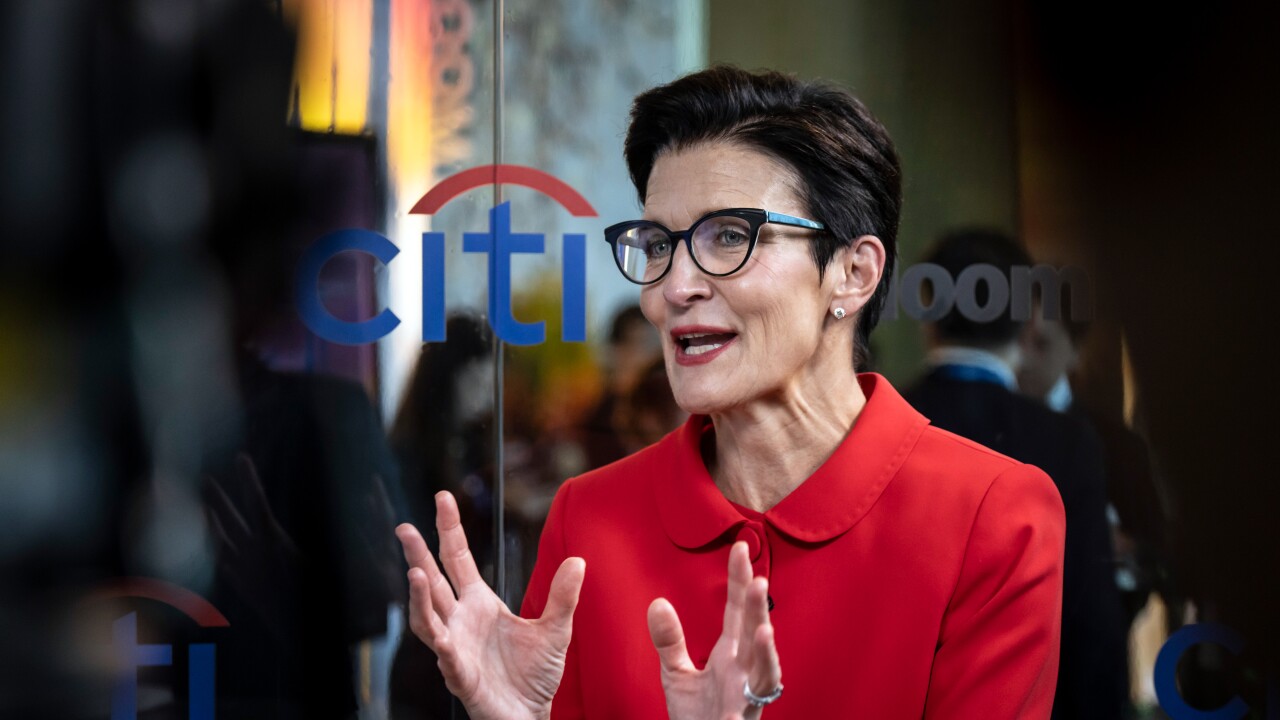- Key Insight: Treasury Secretary Scott Bessent voiced support for raising the asset threshold for banks, noting that current levels may be outdated due to inflation.
- Expert quote: "We want to make sure that you're able to grow without setting off the regulatory tripwires." — Treasury Secretary Scott Bessent
- What's at stake: Banking trade groups have called for an adjustment to the asset cap for banks, criticizing the thresholds as being behind the times.
WASHINGTON — Treasury Secretary Scott Bessent said he supports the idea of changing asset thresholds for banks, arguing that current levels are outdated.
Speaking at a Community Banking Conference hosted by the Federal Reserve Thursday, Bessent said the asset thresholds that trigger a host of enhanced prudential standards enacted as part of the 2010 Dodd-Frank Act require a "substantial increase" to account for inflation and a growing economy.
Most banks with less than $10 billion of assets are exempt from those standards, and banks with more than $100 billion of assets are subject to some of the most stringent standards.
"We do need to do a substantial increase in terms of the regulatory levels, and maybe even an increase from the $10 billion, and when does the Fed get involved," said Bessent.
Bessent said inflation adjustments take place for Social Security and capital gains, so "there's probably a big catchup to do" when it comes to recalibrating the asset thresholds for banks.
"We want to make sure that you're able to grow without setting off the regulatory tripwires," Bessent commented Thursday.
The possibility of a revision to the asset threshold for community banks increased in May after the introduction of H.R. 3230, a bill by Rep. Andy Barr, R-Ky., that raises the threshold for enhanced prudential standards under Dodd-Frank from $10 billion to $50 billion. The measure
That same month a letter signed by 53 banking trade associations, including the American Bankers Association — petitioned the heads of the Federal Deposit Insurance Corp., Office of the Comptroller of the Currency and the Federal Reserve's bank supervision offices to rethink asset thresholds that subject banks to various levels of regulatory requirements.
"Thresholds that once reflected meaningful distinctions in size, complexity, or risk now capture institutions that were never intended to be subject to more burdensome regulatory requirements," the groups wrote. "The practical consequence of this failure to index is a steady expansion of regulatory reach — not through legislative or regulatory deliberation, but by default."
Bessent also voiced support for the modernization of the deposit insurance framework. "I am encouraged to see emerging bipartisan support for increasing [Federal Deposit Insurance Corporation] insurance limits on noninterest-bearing transaction accounts," he said. During a fireside chat at the conference, Bessent also commented on the evolving attitude toward technology. He noted that, unlike the Biden administration, emerging technologies like crypto and AI are not being treated like a "nuclear program [that needs to be] kept in a box."
He said the administration is prioritizing artificial intelligence and digital assets, and emphasized that innovations should be accessible to banks of all sizes. "We're creating a sandbox where there's a lot of offerings," Bessent said. "[So that] community banks are not locked in where they have to use one out of three dominant service providers."
Bessent added that community banks are expected to be highly focused on new technologies, similar to credit card companies. "New payment rails will exist, and I think it's important that it's open for everybody," he added. "[Maybe] community bankers will join together, whether it's a cooperative program or private label. We value community banks and we are going to make sure that any new regulation is done in a safe, sound and not abrupt manner."
Looking ahead, Bessent predicts that the branch model may not be as prevalent as a result of technology greatly changing the banking industry.
"That's the importance of low-cost technological alternatives for the next ten years," he said.







